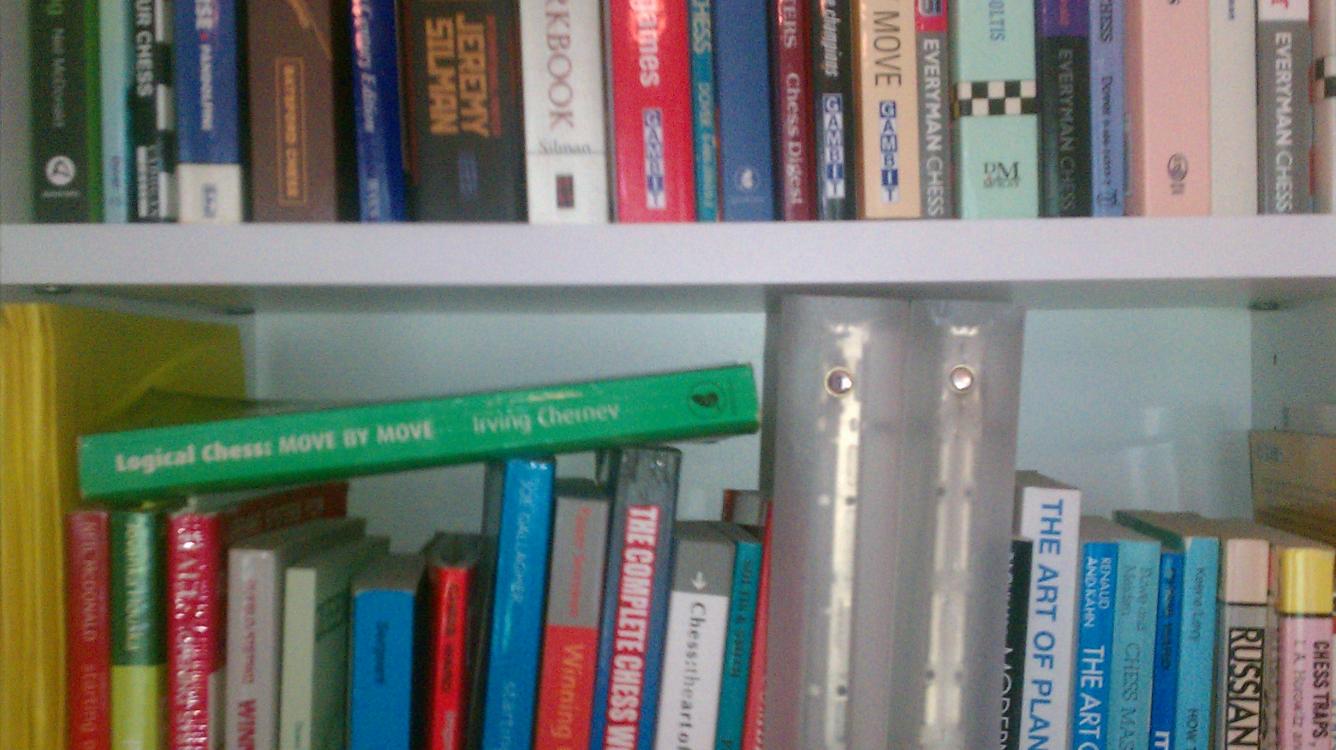
Chess Books are for Studying
Following a long tradition amonst chess players, I have a substantial chess library that remains largely untapped.
I read a convincing recommendation online about the new game changing book by the latest up-and-coming grandmaster and soon my library is one book larger.
Or, I browse through a used book store (one of my favorite activities) and am lucky enough to run across a forelorn gem and, again, my library grows.
However I acquired the more than eighty chess books that sit on my shelves today, I have completely utilized the value of only a small fraction of these.
In fact, should we even be reading chess books? As adult improvers, shouldn't we be studying them?
Instead of reading a book on, say, strategy, from cover to cover, for instance, to see everything an author has to say about this voluminous subject, pick a much smaller slice of strategy that you want to fully understand. (That is, to fully understand given your current ability.)
Study: To investigate and analyze (a subject or situation) in detail.
This is much closer to how I believe we should be using most of our chess books. Instead of just reading a book--on strategy, for instance--and nodding our head in agreement with the author's gems of wisdom, we should set up the positions on a board (physical or computerized) and play through them. Try different variations against our chess engine.
Then, for the particular topic we are reading about in that book--the minority attack, for instance--we can reference other books, articles, videos, and online lessons that discuss the minority attack. What is similar and different about the advice presented via these other sources?
Finally, we can add a section in our Chess Journal (you have one of these, I'm sure) on the minority attack, summarizing the guidelines, maxims, rules of thumb, and/or key positions that helped us understand this topic and that will help refresh our knowledge in future months and years.
Of course, we all have several of those tactics problems books, such as Combination Challenge, and these are usually best used by just solving the problems straight from the diagram. But even with these tactics tomes, we should keep an eye out for those particularly clear positions that speak to us and consider saving those into our Chess Journal.
By studying, instead of just reading, we can hope to fully understand a certain topic and--the point!--be able to utilize it effectively in our games.
